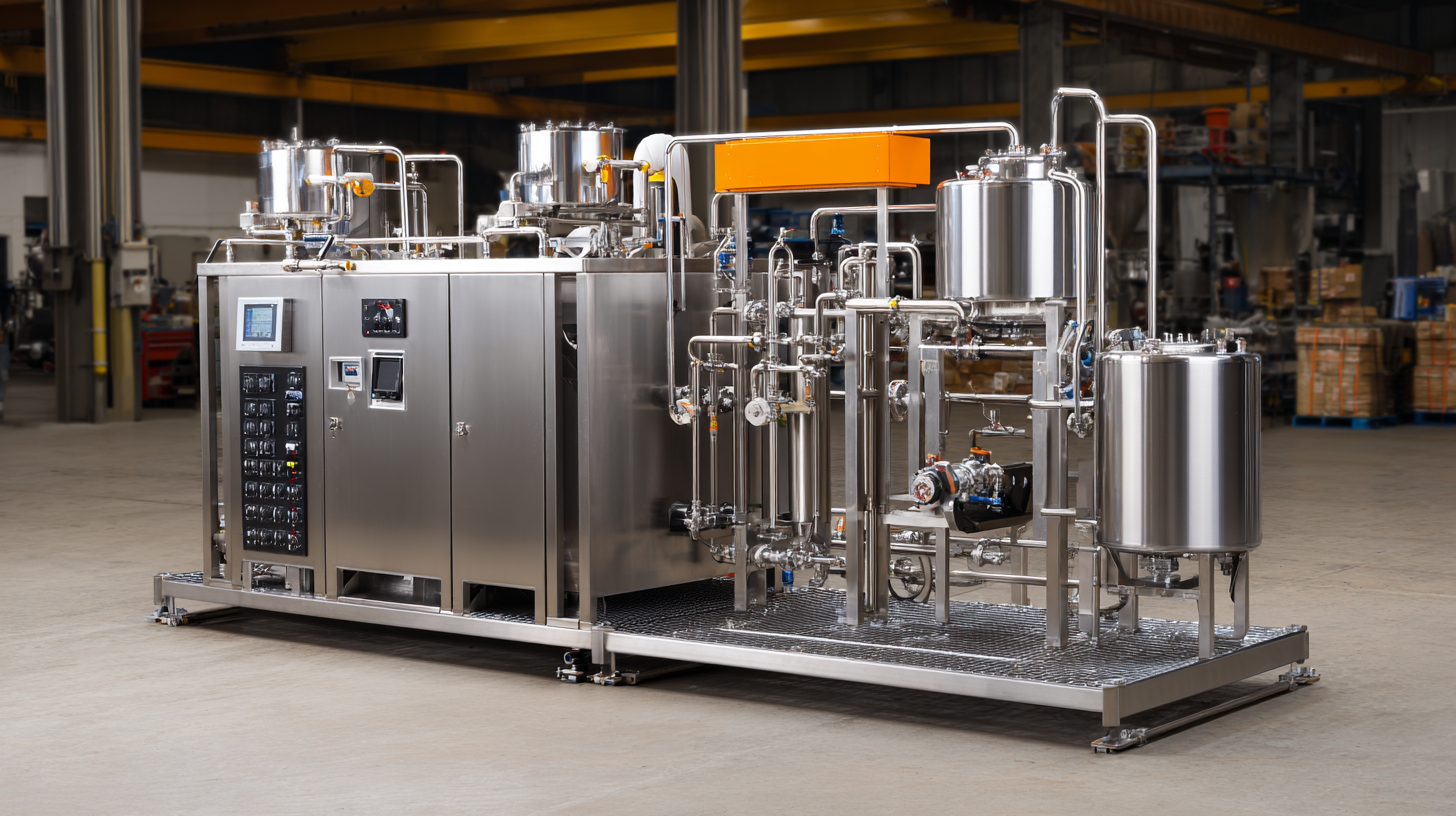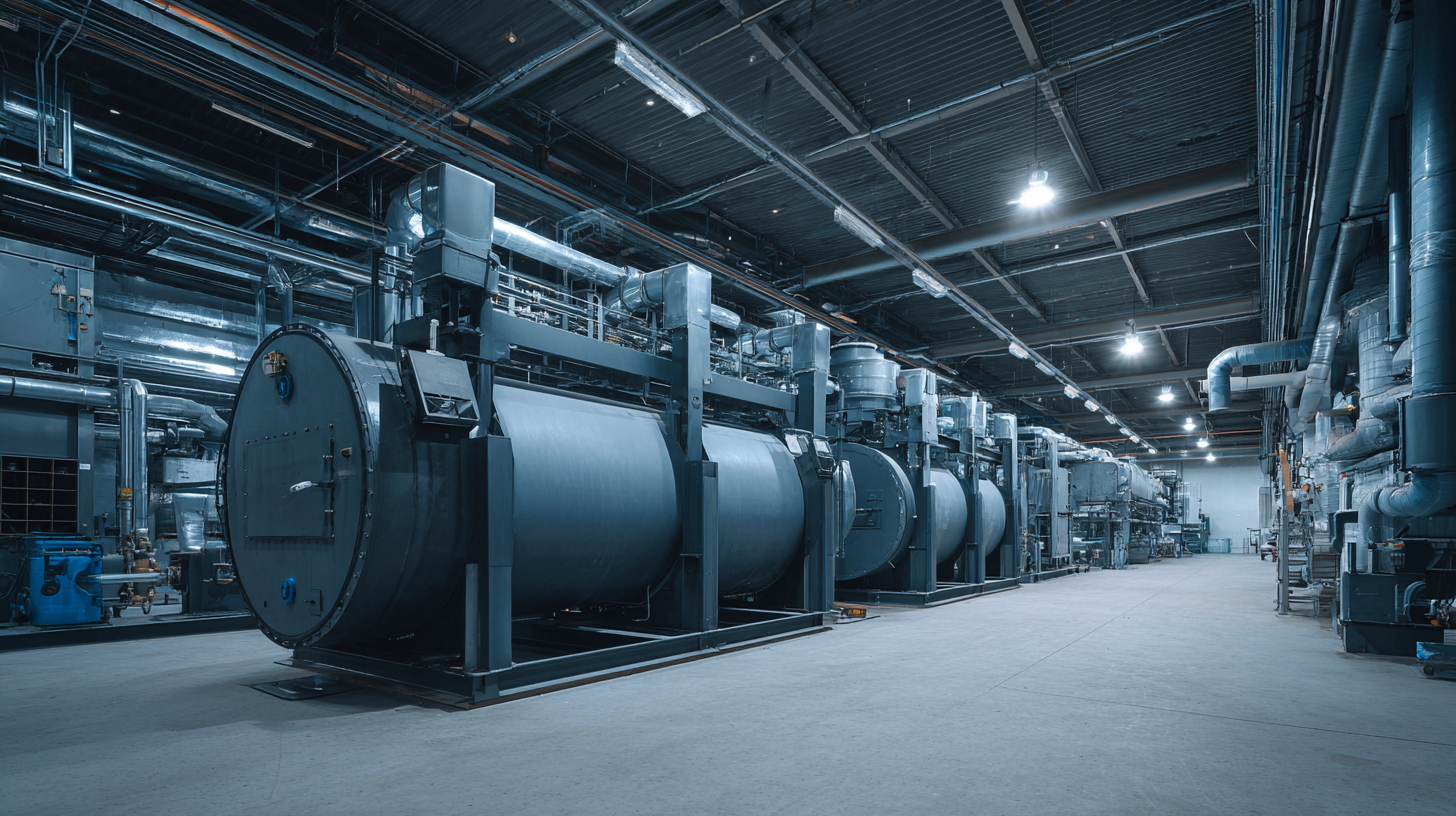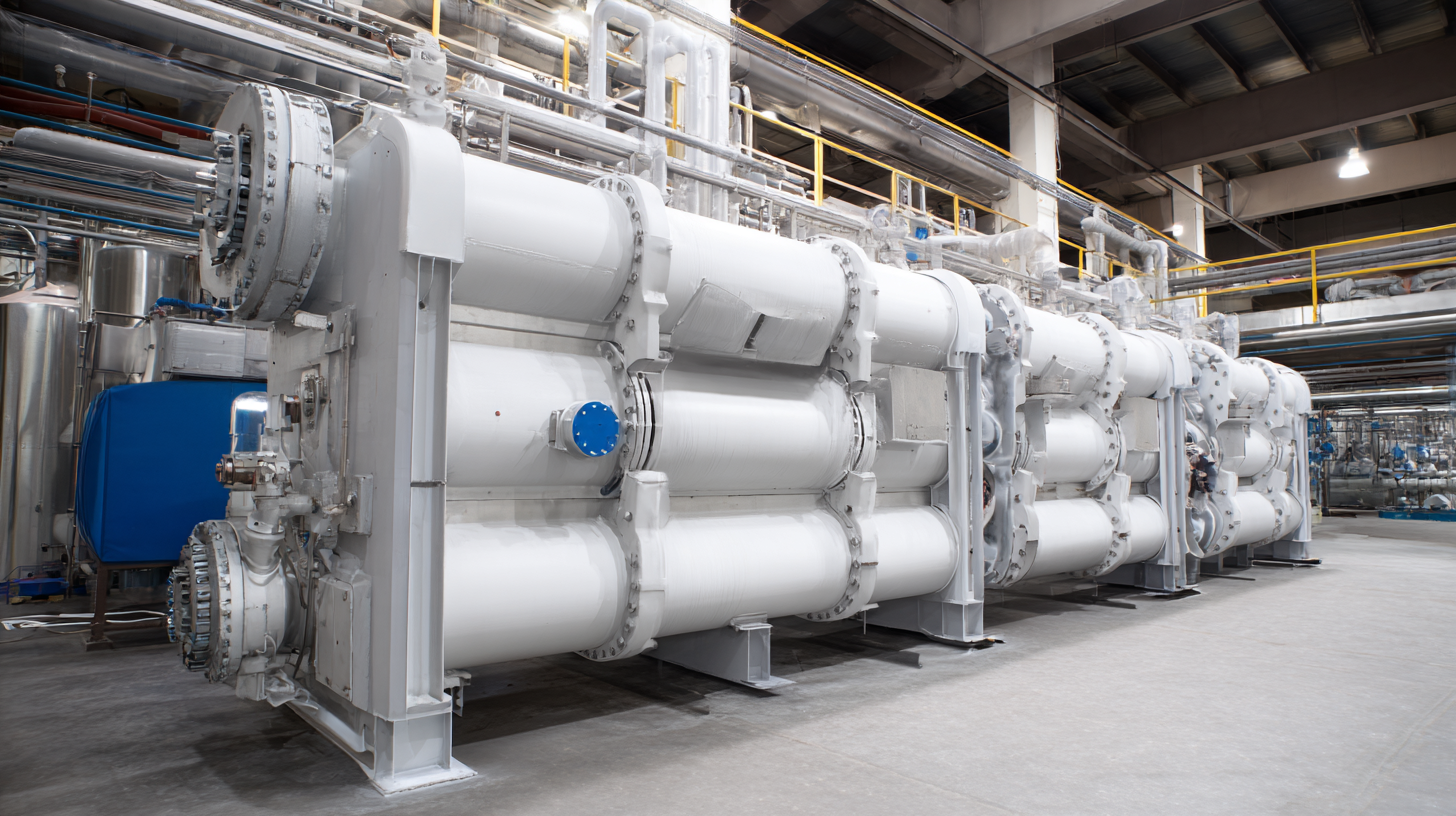




In the realm of industrial processing, the selection of a suitable Filter Dryer is pivotal for achieving optimal efficiency and product quality. With a multitude of options available, it is essential to understand the distinct characteristics and applications of various types of filter dryers to make an informed decision. From the classic vacuum filter dryers to more advanced designs like Nutsche or membrane filter dryers, each type offers unique advantages tailored to different industrial needs.

This ultimate guide serves as a comprehensive resource, providing insights into the features, benefits, and ideal use cases for each filter dryer variant. By examining the specific requirements of your operation, you can ensure that you select the best filter dryer to enhance productivity and meet your manufacturing objectives while maintaining high standards of cleanliness and product integrity.
When selecting the best filter dryer for industrial applications, several key factors must be considered to ensure efficient processing and optimal product quality. First, the specific materials being processed play a significant role in the choice of filter dryer. Industries such as pharmaceuticals, food production, and biotechnologies often deal with various sludges, pastes, and high-viscosity liquids, which require specialized drying techniques. Understanding the physical and chemical properties of the material can help determine whether concurrent, countercurrent, or mixed flow systems are most suitable.
Another crucial consideration is the impact of filtration and washing on the final dried product. For instance, in pharmaceutical manufacturing, maintaining the integrity of particle properties throughout the drying process is vital. It necessitates a filter dryer with effective filtration capabilities to prevent contamination and ensure product consistency. Additionally, advancements in green and sustainable pretreatment methods can offer innovative solutions for enhancing the drying process while reducing environmental impact, positioning manufacturers to meet increasingly stringent sustainability goals.
When it comes to selecting the right filter dryer for industrial applications, understanding the various types available is crucial. Filter dryers generally fall into several categories, including plate and frame, rotary drum, and basket filter dryers. Each type serves unique functions, making them suitable for different processes. For instance, plate and frame filters are ideal for batch processing, while rotary drum filters are better for continuous operations. Choosing the right type depends on the specific requirements of your applications, such as flow rates and desired product quality.
**Tip:** Always consider the nature of the material being processed. Some filter dryers, like vacuum dryers, are particularly effective for heat-sensitive materials, minimizing thermal degradation. Additionally, look into the required filtration efficiency; high-efficiency filters can ensure better product purity, which is often critical in industries such as pharmaceuticals and food processing.
In addition, the design and configuration of filter dryers can greatly influence their efficiency and ease of maintenance. For example, a modular design allows for easier cleaning and servicing, which can reduce downtime. Before making a selection, evaluating factors like space constraints and budget can help tailor your choice to fit your operational needs.
**Tip:** Conduct a thorough cost-benefit analysis to determine the long-term savings associated with different types of filter dryers. This can provide insights into not only the initial investment but also the operational efficiencies and maintenance costs over time.
This chart compares the drying efficiency of various types of filter dryers commonly used in industrial applications. The data represents the average efficiency percentage of each dryer type, helping industries to select the most suitable option for their specific drying needs.
When selecting a filter dryer for industrial applications, evaluating capacity and efficiency is paramount. The capacity of a filter dryer, often measured in liters per hour (L/h), directly affects production throughput. According to the Chemical Engineering magazine’s 2023 report, proper sizing of filter dryers can enhance process efficiency by up to 30%, thereby significantly reducing operational costs. For instance, in pharmaceutical manufacturing, a dryer with a capacity of 500 L/h can facilitate continuous production and minimize downtime, enabling a swift return on investment.

Efficiency metrics also play a crucial role in filter dryer selection. Energy consumption, often expressed in kilowatts per hour (kWh), should be meticulously evaluated. A recent study by the International Society for Pharmaceutical Engineering highlights that advanced filter dryers with energy recovery systems can lower energy costs by as much as 40%. Additionally, the moisture removal efficiency, defined by the percentage of water extracted from the product, is vital for ensuring product quality and compliance with industry standards. Thus, prioritizing these essential metrics will lead to informed decisions, ultimately enhancing both productivity and product quality in industrial operations.
When selecting a filter dryer for industrial applications, maintenance and durability should be front and center in decision-making. According to a report by Global Industrial Solutions, maintaining filter dryers can reduce operational costs by up to 30% over time. Regular maintenance not only minimizes unexpected downtime but also extends the equipment's lifespan. High-quality materials and innovative design can prevent common issues such as clogging and corrosion, which are significant contributors to maintenance costs.
Durability is another crucial factor, particularly in demanding industrial environments. Research from the Manufacturing Technology Association indicates that filter dryers specifically designed for high-pressure applications can last up to 15 years longer than their standard counterparts. This longevity is often achieved through enhanced structural integrity and the use of advanced filtering materials that resist wear and tear. By investing in a durable filter dryer, companies can ensure consistent performance while significantly reducing the frequency and costs associated with equipment replacement.
| Attribute | Description | Importance Rating (1-5) |
|---|---|---|
| Material Quality | High-grade materials resist wear and corrosion. | 5 |
| Maintenance Frequency | Regular checks and servicing to ensure optimal performance. | 4 |
| Energy Efficiency | Lower operating costs due to efficient energy use. | 5 |
| Size and Capacity | Choose the right size for your production needs. | 4 |
| Ease of Use | User-friendly design for efficient operation. | 3 |
| Warranty and Support | Reliable warranty and customer support for trouble-free operation. | 5 |
| Adaptability to Processes | Ability to integrate with existing systems and processes. | 4 |
| Maintenance Training | Availability of training for staff on maintenance practices. | 4 |
| Replacement Parts Availability | Easily sourced replacement parts to minimize downtime. | 5 |
When it comes to selecting the best filter dryer for your industrial needs, budgeting effectively is key. The cost of filter dryers can vary significantly based on their size, efficiency, and material. Understanding your budget helps narrow down options without compromising on quality. To get started, analyze your production volume and the specific requirements of your application, as these factors will directly influence the type and size of the filter dryer you need.
**Tips:** Always account for long-term operational costs, such as energy consumption and maintenance. Cheaper models may lead to higher costs over time if they require frequent repairs or inefficient operation. Additionally, consider the potential for higher productivity and lower downtime with more advanced filter dryer options. Investing a bit more upfront can yield significant savings and benefits in the long run.
Another important aspect of budgeting is comparing various manufacturers and models. Look beyond the initial purchase price and evaluate warranties, customer service, and availability of spare parts. Doing thorough research can help you avoid unplanned expenses and find the best value for your investment. When exploring options, don't hesitate to reach out to industry experts or suppliers for insights into what might best suit your needs and budget.



